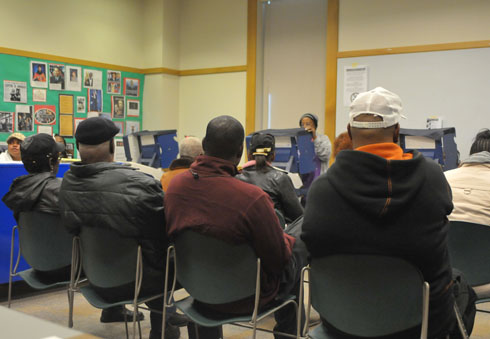
Defender Staff Report
Cook County officials say more than 97,000 suburban residents voted early last week.
County Clerk David Orr said Monday if the pace continues, early voting may reach a record set four years ago.
Early voting turnout in suburban Cook County is up 84 percent compared to the first week of early voting in 2008. It’s 18 percent higher than in the second week of early voting four years ago.
Officials caution, however, that comparisons are tricky. Early voting began a week later this year. And it lasts two days longer to the Friday and Saturday before Election Day.
Suburban voters can cast ballots early at any of 44 early voting sites from 9 a.m. to 5 p.m. through Nov. 3.
In the 2008 election 31 percent of voters voted early nationwide, with that percentage expected to arch upward to 36 percent for the 2012 election. And, in Chicago 260,000 people voted early in 2008.
Polls show that President Barack Obama remains the favorite among 18- to 29-year-old registered voters, as he was in 2008. No one thinks the majority of young voters will support Romney.
Carrie Cameron, a 24-year-old medical assistant from south suburban Lynwood, said she remained undecided in the 2008 election until about a month before the election, and this time around, she’s “cutting it close” to the end.
“It’s a different America from four years ago. I’ve seen positive changes under the Obama administration, yet, there are a few things that don’t sit well with me. I’m definitely cutting it close in making my decision,” said Cameron.
It takes at least four years to turn things around, she said, hinting toward while she’s still undecided, she’s close to making a decision.
“When Tuesday comes, I’m 99 percent certain Obama will get my vote,” Cameron said.
Alfred Brown, a recently unemployed father of one, said the economy has done a number on him and he’s tired of waiting for it to rebound. However, he says Obama’s not to blame.
“It was starting to go south before he got in office and he’s been forced to try to rush and fix it. He’ll still getting my vote,” said 27-year-old Brown.
Unemployment is the top concern among young people, says Deborah Maue, vice president at TRU, a Chicago-based research company that specializes in tweens, teens and young adults. Just after the 2008 election, unemployment ranked fifth, behind such issues as education and health care.
But, Maue, says this is a generation that’s also passionately “hands off” on social issues. TRU’s research also has found that teens are increasingly uninterested in organized religion.
“They’re all about individuality and accepting people as individuals,” says Maue, who leads the TRU Enrollment Insights Program for higher education professionals.
In 2008, Republican pollster Kristen Soltis says she watched disappointedly as her party “really let the youth vote go.”
“This election is such a huge opportunity for Republicans,” says Soltis, who, at age 28, is also a member of the millennial generation.
But it remains to be seen whether Republicans can win over these young voters on social issues, especially when the economy rebounds.
Brady Meixell, a freshman at the College of William & Mary in Virginia, agrees.
“People in my age group who would typically be Republicans, and are very fiscally conservative, are disenchanted with the social conservatism of the GOP and don’t exactly know where to turn,” says Meixell, who’s 18 and plans to vote for Obama.
He says Obama has won many students over with college loan reforms and with his health care plan, which allows young people to stay on their parents’ insurance into early adulthood.
A recent TRU poll found that more young people answered “don’t know” or “don’t care” when asked if they were liberal, moderate or conservative.
Six months after the 2008 election, 13 percent of teens and twentysomethings gave that answer. In a recent poll, that “don’t know/don’t’ care” number rose to 27 percent for the entire age group — and to 36 percent for teens.
That could be bad news for those hoping to build on the last election’s banner youth vote numbers. But Maue, at TRU, doesn’t necessarily think it means they’re disengaged.
“It may mean they’re undecided,” she says. “So it could go either way.”
Election Day is Tuesday, Nov. 6.
Associated Press contributed to this report

